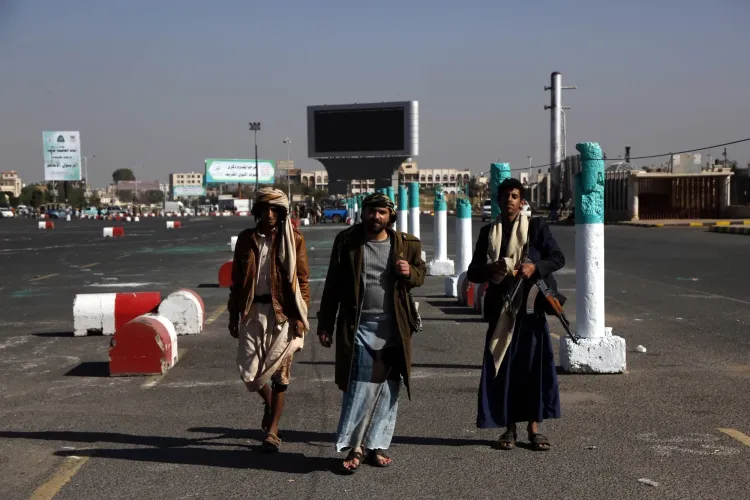Did Yemen's Houthis Launch a Ballistic Missile Strike on a 'Sensitive' Target in Israel?

Synopsis
Key Takeaways
- The Houthi group claims to have launched a ballistic missile at Israel.
- Air defense sirens were activated for the first time since the recent Israel-Iran ceasefire.
- The strike was described as a form of support for the Palestinian people.
- Israel's defense forces reported successful interception of the missile.
- The situation highlights ongoing tensions in the Middle East.
Sanaa/Jerusalem, June 28 (NationPress) The Houthi group from Yemen declared on Saturday that it executed a ballistic missile strike aimed at a 'sensitive' site located in southern Israel, triggering air defense sirens in Israel for the first time since the ceasefire regarding the Israel-Iran conflict was initiated on Tuesday.
The strike, employing a Zulfiqar ballistic missile, was reported by Houthi military spokesperson Yahya Saree, who stated in a televised address via the group's al-Masirah TV that the missile had 'successfully hit its target.'
Saree further indicated that earlier in the week, Houthi forces had conducted 'multiple military operations' targeting 'sensitive' locations and military assets in three Israeli cities: Beer Sheva, Jaffa (Tel Aviv), and Haifa, utilizing several ballistic missiles and drones, all of which were 'successfully executed.'
He expressed that these operations were a 'form of support for the oppressed Palestinian people', asserting that the group would persist in its 'supportive military operations until the aggression on Gaza ceases and the blockade is lifted.'
In response, the Israel Defence Forces (IDF) reported that a missile fired from Yemen towards Israel on Saturday morning was 'most likely successfully intercepted.'
According to Israel's national emergency service, Magen David Adom, there were no immediate reports of strikes or casualties, as noted by the Xinhua news agency.
Following the missile launch, air defense sirens resonated across extensive areas of southern Israel, including Beer Sheva, Dimona, and the Dead Sea region, prompting hundreds of thousands of residents to seek shelter.
On Thursday, Houthi leader Abdul-Malik al-Houthi claimed that his forces had launched 309 ballistic and hypersonic missiles, along with drones at Israel since mid-March, as part of what the group refers to as the second phase of its military campaign.
In a televised address commemorating the Islamic New Year, broadcast by Houthi-operated Al-Masirah TV, al-Houthi mentioned that 25 missiles and drones were launched just this month, characterizing these actions as 'qualitative military operations in support of Gaza.'
He reiterated that the Red Sea remains closed to Israeli-linked maritime traffic and accused Israel of persisting with its offensive in Gaza with backing from the United States.
Meanwhile, Yemen's internationally recognized government has charged that Iran's Islamic Revolutionary Guard Corps (IRGC) is directly supervising the missile systems deployed by Houthi forces.
Information Minister Moammar al-Eryani stated that Tehran is utilizing Yemen as an 'advanced missile platform' to pose threats to regional and international security while avoiding direct confrontation.
The Houthis, who dominate much of northern Yemen, began targeting Israel in November 2023, shortly after the eruption of the Israel-Hamas conflict in Gaza, claiming it as an act of solidarity with the Palestinian populace.









